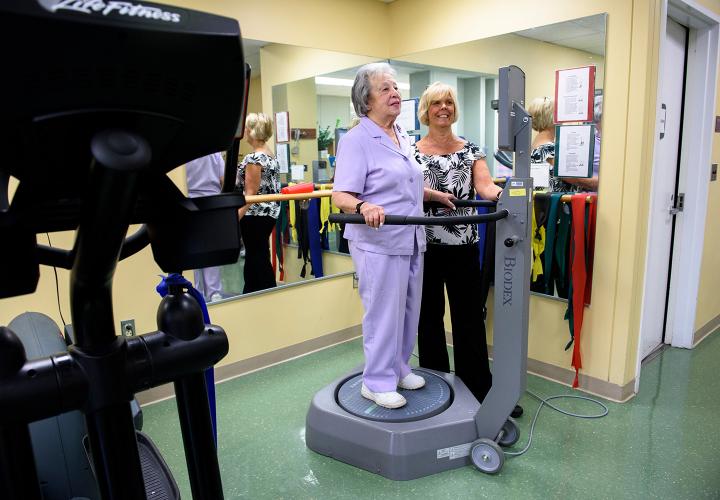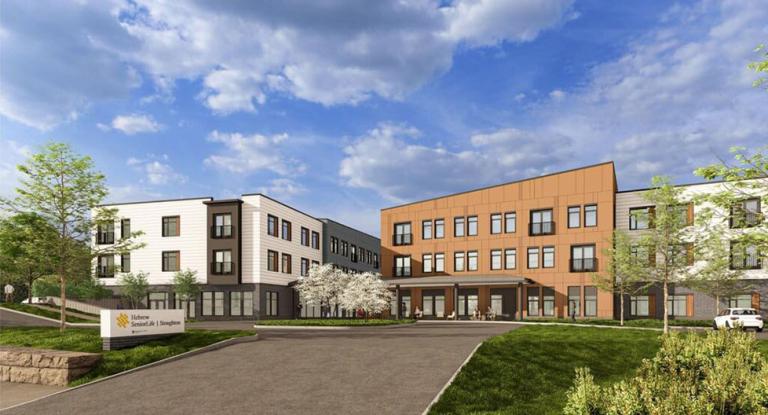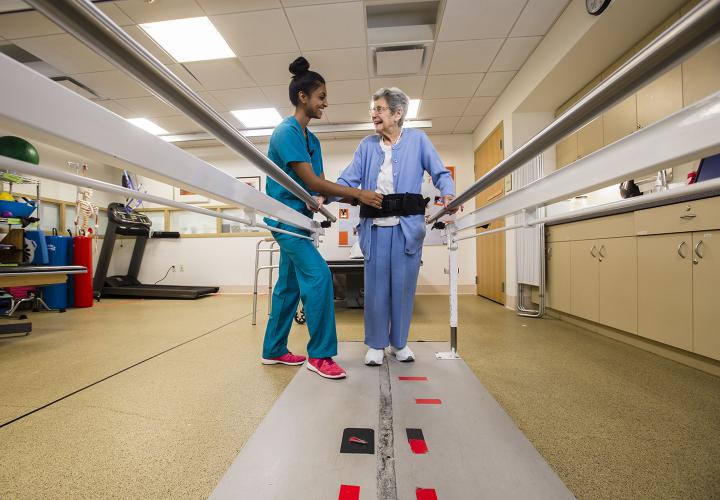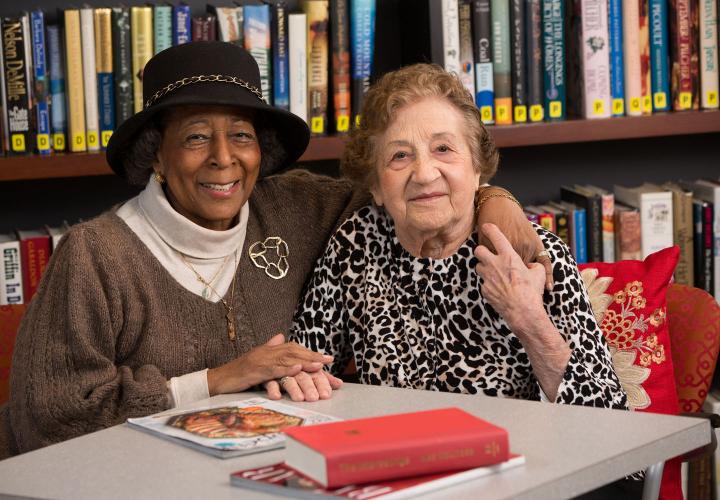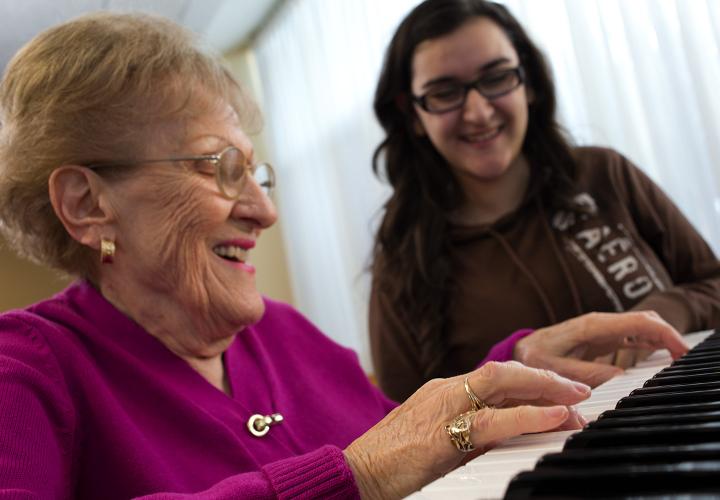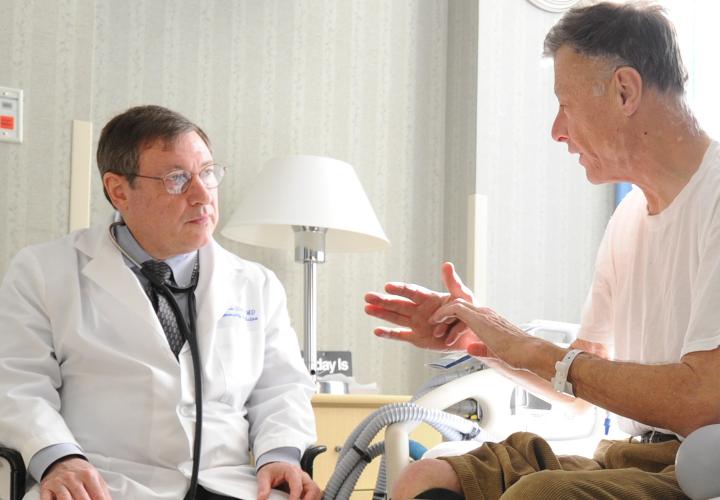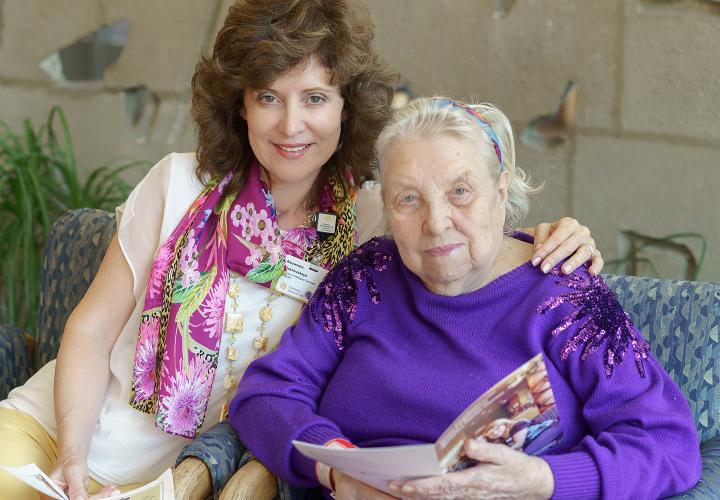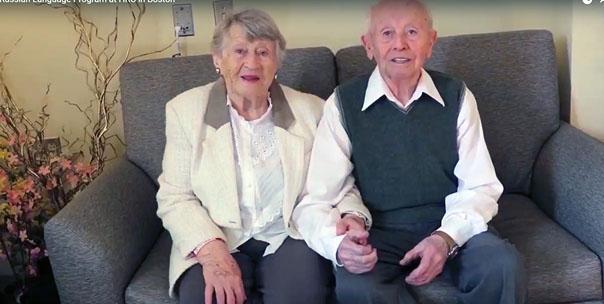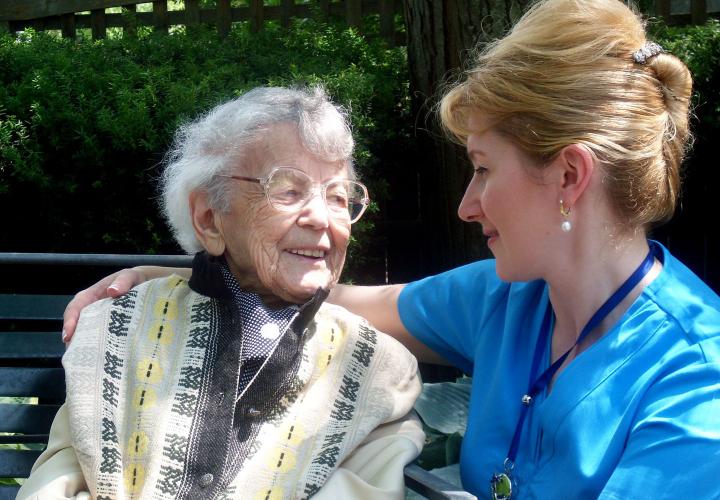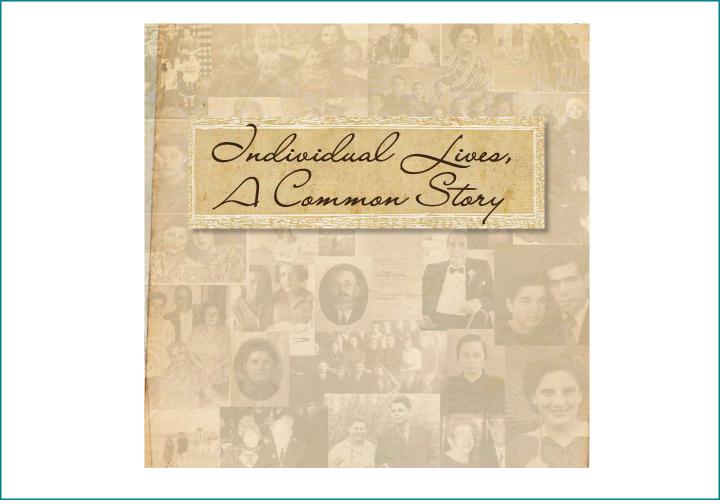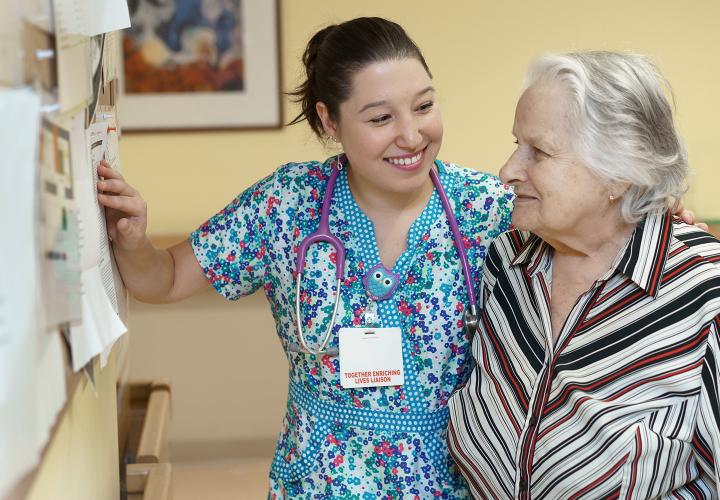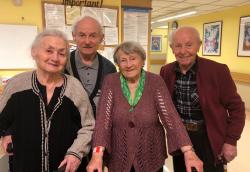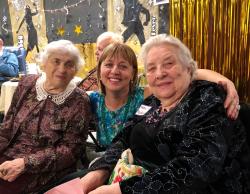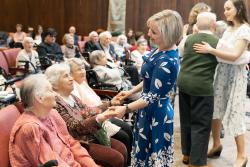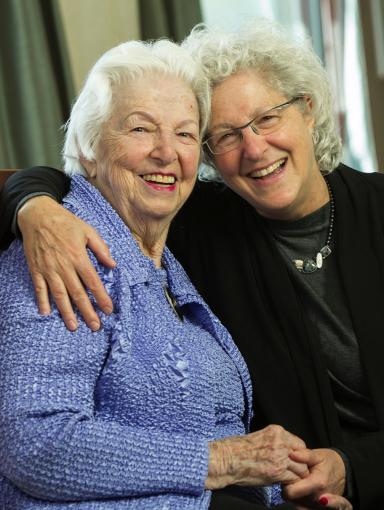The heartwarming spirit of community support is alive at NewBridge on the Charles in Dedham and Orchard Cove in Canton, two distinguished Hebrew SeniorLife living communities, as the residents announce the awarding of 42 educational scholarships to the hardworking staff members. Hebrew SeniorLife, an affiliate of Harvard Medical School and recognized among Boston’s Top Places to Work, remains New England’s largest nonprofit provider of senior health care and living communities.
The residents, who often develop strong bonds with the staff, established these funds to help staff with the costs of higher education. The scholarships are resident-run and -funded, open to all eligible employees, and are a community effort. Orchard Cove and NewBridge have separate resident committees that raise scholarship funds and review applications. Since 2006, when Orchard Cove residents established its program, they have distributed 372 scholarships totaling $540,000. In addition, since its inception four years ago, the NewBridge Scholarships committee has awarded 75 scholarships totaling $445,000. Some employees at both communities received awards multiple years.
“We are grateful for the overwhelming generosity displayed by our residents in creating and funding these impactful scholarships that make a real difference in helping our staff members pursue their higher education goals,” said Matthew Hollingshead, executive director, NewBridge on the Charles. “The recognition and support our staff receive from our resident community is truly uplifting. Our employees consistently demonstrate exceptional dedication, compassion, and engagement, ensuring our residents receive the highest quality of care and support. Witnessing the bond between our staff and residents is a testament to the extraordinary communities we have built together.”
This year, 29 employees from NewBridge and 13 employees from Orchard Cove were chosen as recipients of these scholarships. These award winners work in many different job roles and divisions, including culinary, fitness, security, and nursing, and are pursuing various courses of study at two dozen institutions. They come from more than 17 towns in the local area, making it a genuinely united celebration of the community.
Scholarships will help these employees continue their education at a variety of colleges and universities, including UMass Boston, UMass Amherst, Emerson College, University of Connecticut, Saint Francis University, Temple University, Indiana University, and Howard University, just to name a few. Scholarships were also awarded to schools like the Parker Professional Driving School, SCW Fitness, and the Cass School of Floral Design.
For example, Sophia MacKinnon, a two-time NewBridge Scholarship Fund recipient and server at Centro, the onsite full-service restaurant at NewBridge, will continue her education at the University of Vermont. She has been accepted into the Patrick Leahy Honors College as a Spanish minor and a sustainability, ecology, and policy major with a concentration in environmental planning policy. “None of these educational aspirations would be nearly as accessible without the NewBridge Scholarship,” Sophia said. “I am truly grateful for the generosity of all the residents here at NewBridge for significantly supporting the education of so many students.”
The scholarship committees are already planning for 2024 scholarships—continuing to demonstrate their unwavering commitment to their dedicated staff members’ educational aspirations and personal growth.
“Many of our residents are retired educators but the entire community feels that education is important, and they work hard all year developing programs and hosting events to raise money for the scholarship fund,” said Aline Russotto, executive director, Orchard Cove. “The success of the fund is a testament to the commitment of our residents and to the drive and dedication of our employees, who must balance demanding jobs while pursuing additional education to improve their lives. These scholarships make a difference.”
The NewBridge and Orchard Cove scholarship funds are separate from and in addition to generous scholarship and tuition reimbursement programs offered by Hebrew SeniorLife itself that are available to employees and their family members. Mark and Abby, the children of Tina Manuel, campaign manager and planning specialist, have been recipients of these scholarships. “The scholarship is such a tremendous blessing! While Vanderbilt, like Hebrew SeniorLife, is very generous and was the reason I was able to attend such a prestigious university, I still have many out-of-pocket costs. The scholarships have helped with these incidental costs and allowed me to be more fully engaged on campus,” said Mark Manuel. While he is not sure of his plans after college, he commented, “I’d love to work at Hebrew SeniorLife! It’s a great organization that takes care of its employees. They have been fantastic to our family.” His sister Abby, an elementary education major also at Vanderbilt, has similarly received two Hebrew SeniorLife corporate scholarships that helped her afford transportation services so she could attend her practicum and stay on track to graduate.
In addition, to make it easier for staff, Hebrew SeniorLife has established tuition discount agreements with Drexel University, Quinnipiac University, Regis College, Regent University, University of Cincinnati, and other higher ed Institutions to offer a wider range of learning opportunities for all employees.
Information about careers at Hebrew SeniorLife is available online.
About Hebrew SeniorLife
Hebrew SeniorLife, an affiliate of Harvard Medical School, is a national senior services leader uniquely dedicated to rethinking, researching, and redefining the possibilities of aging. Hebrew SeniorLife cares for more than 4,500 seniors a day across six campuses throughout Greater Boston. Locations include: Hebrew Rehabilitation Center-Boston and Hebrew Rehabilitation Center-NewBridge in Dedham; NewBridge on the Charles, Dedham; Orchard Cove, Canton; Simon C. Fireman Community, Randolph; Center Communities of Brookline, Brookline; and Jack Satter House, Revere. Founded in 1903, Hebrew SeniorLife also conducts influential research into aging at the Hinda and Arthur Marcus Institute for Aging Research, which has a portfolio of more than $85 million, making it one of the largest gerontological research facilities in the U.S. in a clinical setting. It also trains more than 1,000 geriatric care providers each year. For more information about Hebrew SeniorLife, visit our website or follow us on our blog, Facebook, Instagram, Twitter, and LinkedIn.
